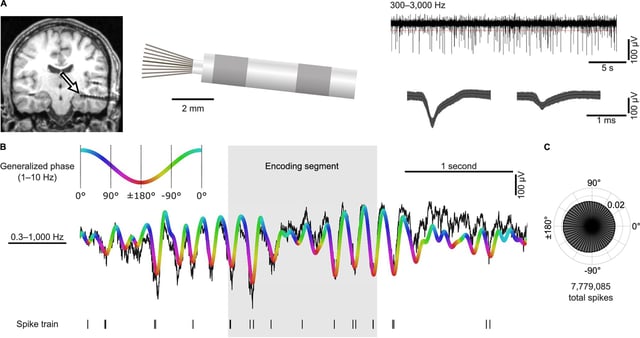Overview
- Researchers recorded single-neuron activity in the medial temporal lobe of epilepsy patients using intracranial electrodes during a spatial-memory task.
- They observed widespread theta-phase locking, with neurons preferentially firing at specific phases of 1–10 Hz oscillations during both encoding and retrieval.
- A subset of neurons altered their preferred firing phase between learning and remembering, supporting theories of separate processing windows within the theta cycle.
- Phase-locking strength did not differ between successfully recalled and forgotten trials, indicating that timing alignment alone does not predict memory performance.
- Authors note that these correlative findings in a clinical sample require further study to establish causality, generalize to broader populations and explore therapeutic implications.

